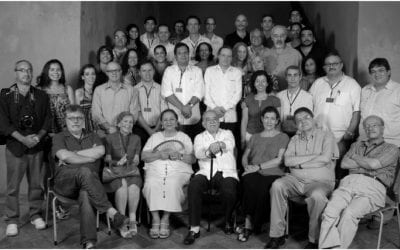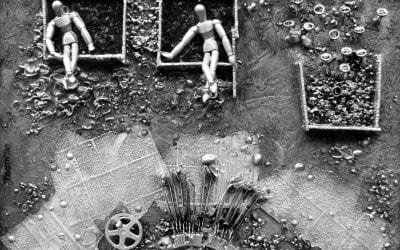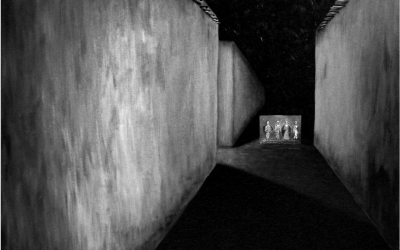Investigative Journalism
CIPER Chile
It was the end of the year 2006. Six years of intense effort to create a newspaper to break the duopoly of the written media in Chile were coming to a close. Diario Siete (Seven News), which I founded and directed together with one of the best journalist teams in the country, closed its doors for lack of sponsorship from private companies and the state.
Frustration had overtaken the team members. After having worked inhumane hours giving the best of themselves, they ended up unemployed. A defeat for those of us who had battled together with so many others to recover a democracy without confrontations, preserving the few spaces where we could use our only weapon: telling the truth despite intense repression.
For this reason, there was no justification, under the rule of democracy, for state organizations to privilege the same communications media they had supported during the dictatorship with advertising money—the indispensable oxygen that they denied us despite the high quality of our widely-recognized informative work.
This situation brought a group of editors from Diario Siete to sit around my desk at home to look for decent jobs that would allow us to survive. We were trying desperately to preserve a part of the team we had forged with so much care and conviction. And it was there that the dream began to take shape. It was born around a desk in my home, sharing a coffee with a group of journalists who longed to be able to extend their best talents to the public by providing truthful information and reporting.
We thought of a media where investigative journalism was the main dish, where the pertinent information that affects and determines our daily lives was a priority, and where professional rigor was an obligation. Without any political blinders, without censorship and definitely without self-censorship. Without remaining silent in exchange for publicity. A dream. For some, a crazy dream.
Álvaro Saieh, one of the most important businessmen in Chile, didn’t think it was so crazy. He is the main stockholder of COPESA, one of the axes of the information duopoly mentioned earlier.
Saieh had financed 50% of Diario Siete, aware of the need to introduce more diversity in the media, and he was sorry to see it close. I think he had even become so fond of the paper that every day he provided information that was not to be found in other media, that was entertaining, and that gave us our identity. And one day in March 2007 in his large office in Santiago, while asking that I be realistic about my dream, he took out a piece of paper and started writing down numbers. Finally, he took out his calculator, added them up and said, “Let’s do it, I’ll finance it. I like this!”
Thus Chile’s only Center for Investigative Reporting, CIPER, was born. We started on May 1, 2007, with four journalists sitting around that same desk in my house, this time joined by journalist and Columbia University professor John Dinges, who accompanied us in the beginning, enthusiastic and full of ideas.
The strict truth: it was a weak bet. We weren’t even clear about what our format would be. We thought that what wasn’t on paper didn’t have an impact. Six months later, we acquired a new identity when the Chairman of the Board of COPESA, Jorge Andrés Saieh—Álvaro Saieh’s son— took the initiative and created our first website to disseminate our investigations.
Without publicity and without advertising, the investigative website got off to a timid start. The journalists in Chile responded as if it were an artisan fraction of the media, one of those they derogatorily call “alternative,” and from which they could plagiarize without repercussions. And they copied us shamelessly without attribution to the authors of reports that took more than a month of work to put together, and which these third parties disseminated as if they were their own. This is what happened with the investigation entitled “Robber Cop: Delinquents in Uniform,” which revealed the high percentage of corrupt police officers.
Not even when we published the unprecedented investigation called “Journey to the Depths of Pinochet’s Library,” which revealed an unheard of and absolutely unknown facet of the former dictator, was there public recognition of our work. But we had a lot of readers on the web. Cristóbal Peña’s library story later received the prestigious prize of best report of the year from the New Iberoamerican Journalism Foundation (FNPI): an award no Chilean had received before.
The media silence continued until March 17, 2008, when we uploaded an investigation to our portal that represented the work of three journalists over a period of more than two months. In the report we detailed the multiple irregularities of the public bid for the technological, communication, and computer program platforms of the Civil Registry, awarded to the Indian company Tata Consultancy Services BPO Chile S.A., which would be in charge of administrating the entire Chilean public database (a US$80 million contract).
The next day the Judicial Minister annulled the public bid; the following day he removed the staff officers of the Civil Registry, and three days later he gave CIPER’s information to the Public Ministry to initiate the judicial investigation. For the first time, executives of a private company—the invisible partners of corruption—were implicated in an official investigation. The scandal obligated other media to cite us as their source. And from then on, we had the respect of the media.
We were sure about our path. That investigation won many prizes. And many more have been added since. However, it is not the awards and distinctions that are important to us, rather, it is having an impact on public policy and the public debate. A good investigative product not only supervises state and private power, it also influences the public agenda by forcing changes in public policies that violate or prejudice citizens and demanding the utmost care of public funds.
This is what happened with our investigation on the irregularities in housing development that the violent February 2010 earthquake left exposed.
In these three years and eight months of life we have preserved this line of reporting. We have put under scrutiny the private security business that recruits delinquents to guard homes and businesses, as well as the parallel water market in northern Chile, where this vital element is bought and sold for millions to meet the demands of mining companies while farmers and the local population suffer from the transactions. We have also put the areas of Santiago occupied by drug traffickers on the map—areas where neither state institutions nor the law dare to tread. And then there is the groundbreaking X-ray of the clans who control the drug market in the capital city. We have not forgotten about retail company labor abuses or sexual abuse perpetrated by priests. Both issues have touched on sensitive areas of the economic powers that be.
For a year we investigated public hospitals and demonstrated how doctors deny the right to adequate health care to millions among the poorest with their poor medical attention—while in the afternoons they give their best skills to those who pay for their appointments at private clinics.
One key instrument for broadening our investigations has been the recently implemented Public Information Access Law. We have become experts in its good use and addicted to it. In fact, our petition for information about a nonprofit foundation started by President Sebastián Piñera (the Future Foundation), filed when he was a presidential candidate, was qualified by the Transparency Council of Chile as one of the ten requests that led to legal precedent in this area. As a result, the balance sheets of all nonprofit institutions have been declared public information.
Finally, we finished 2010 by publishing a book that compiles CIPER’s twelve best investigations, which rapidly rose to the top ten on the non-fiction bestseller list in the country. The book was a product of a multifaceted collaborative effort between the Universidad Diego Portales and CIPER to strengthen investigative journalism in Chile and in the region. We have multiplied the number of visits to our website from all over the world, principally from Latin America. We would not have been able to grow in impact and greater production without the financial support of the Open Society Foundation and the Ford Foundation, which believed in our product from early on.
Today, as we are about to become a nonprofit foundation, we are starting a new era. We are full of projects, all of which have the same purpose: to produce high impact, quality investigative journalism that serves society and provides diverse information in a country where practicing good journalism is a constant challenge.
Spring 2013, Volume XII, Number 3
Mónica González is the director of CIPER (www.ciperchile.cl). González has frequently given workshops around Latin America. In 2006 she received the Career Tribute Award by the Fundación Nuevo Periodismo Iberoamericano (FNPI) and in 2010 the UNESCO/Guillermo Cano Award for Freedom of the Press. She also received the 1988 Louis M. Lyons Award for Conscience and Integrity in Journalism, awarded by the Nieman Foundation at Harvard University, and the 2001 Maria Moors Cabot Prize for outstanding reporting on Latin America by Columbia University.
Related Articles
New Journalists for a New World
I received a surprising phone call one day in late 1993, when I was the director of Telecaribe, a public television channel in Barranquilla, Colombia. The caller was none other than Gabriel García Márquez. “Will you invite me to dinner?” he asked me. “Of course, Gabito,” I…
Latin American Nieman Fellows
A few days after I arrived at Harvard in August 2000 to begin my work as curator of the Nieman Foundation for Journalism, Tim Golden, an investigative reporter for the New York Times in Latin America, phoned me. “Could I find a place in the new Nieman class for a Colombian…
Freedom of Expression in Latin America
In June 1997, Chile’s Supreme Court upheld a ban on the film “The Last Temptation of Christ,” based on a Pinochet-era provision of the country’s constitution. Four years later, the Inter-American Court of Human Rights heard a challenge to this ban and issued a very different…





